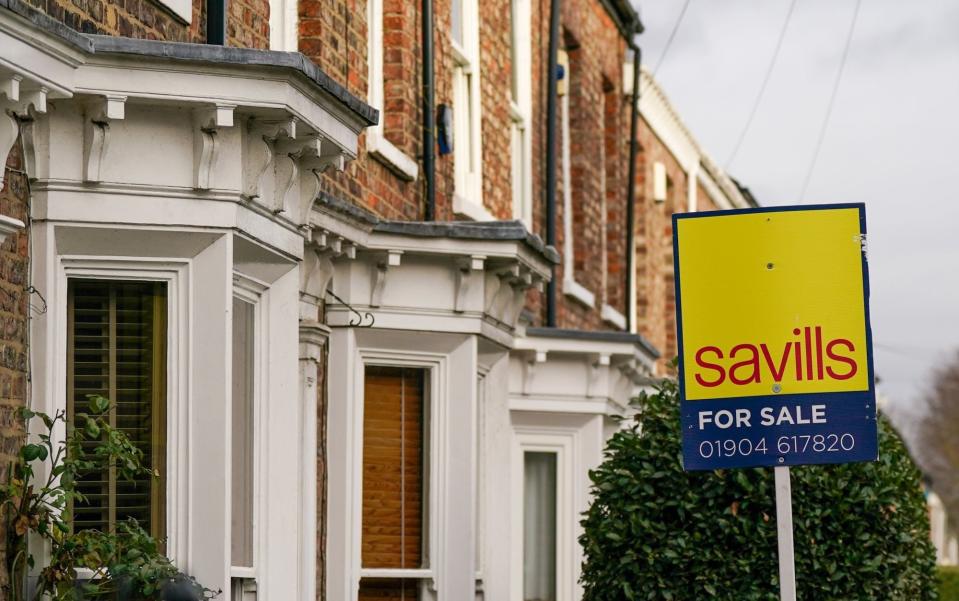House sales plunge to lowest level since Covid viewing ban

Home sales have slumped to their lowest level since moves were banned during the pandemic.
Residential transactions slumped by a third in April, as the shock of the autumn surge in borrowing costs continues to impact the housing market.
There were 67,220 residential transactions in April, according to HM Revenue and Customs data. This was a drop of 29pc compared to March.
April marked the lowest monthly sales total since the 2020 lockdown period when viewings were banned and the market was essentially frozen.
Excluding that extraordinary period, April was the worst month for house sales in a decade. The last time transactions were this low the market was still recovering from the financial crisis.
The current slump reflects the sharp increase in mortgage rates since September’s mini-Budget. The average two-year fixed-rate deal climbed from 4.7pc to 6.65pc in just four weeks after the statement.
Because the average property deal takes around five months from sale agreed to completion, this spike is now hitting the spring transaction data.
Mortgage rates had been declining since their October peak but are now rising quickly again. As a result, analysts fear the current slump will worsen in the months ahead.
Gilt yields have returned to levels last seen during the autumn after unexpectedly high inflation prompted traders to ramp up their bets on future interest rate rises. City analysts are now betting on a peak in Bank Rate of 5.5pc.
Mortgage prices are based on interest rate expectations and Mark Harris, chief executive of mortgage broker SPF Private Clients, said: “Lenders are busy repricing their fixed rates upwards.”
A typical two-year fixed-rate mortgage has climbed from 5.33pc to 5.45pc over the last week. That means a buyer taking out a typical £200,000 loan will have to pay an extra £240 per year in interest compared to if they had secured a mortgage deal a week earlier.
The average rate on a five-year fix has jumped from 5.01pc to 5.12pc.
Andrew Wishart, who runs the housing service at Capital Economics, warned that mortgage rates would soon return to levels seen in the autumn.
He said: “The average quoted mortgage rate will pick back up from 4.3pc in April to over 5pc imminently and reach a peak of 5.7pc in Q1 2024.”
The increase will mean a buyer taking out a £200,000 loan would have to pay an extra £2,800 per year in interest, compared to if they had secured a mortgage offer a year earlier. In turn, purchasers will find they are simply unable to borrow as much as they had expected and will not be able to offer as much on properties.
The uncertainty over future borrowing costs means lenders have also started to pull fixed rate deals from the market.
Banks have withdrawn 390 fixed rate residential mortgages and 311 buy-to-let deals since last Monday, according to Moneyfacts.
Lucian Cook, head of residential research at Savills, warned that the housing market is about to dip again.
Mr Cook said: “As underlying inflation proves hard to rein in and with mortgage costs back on the rise, it looks increasingly possible that we will see a W shaped recovery in the housing market over the course of 2023 and 2024.”
Mr Wishart said: “Our forecast of a further 8pc drop in house prices was looking uncertain based on our previous interest rate profile. But with rates now expected to rise further and stay higher for longer, it is again a reasonable central case.”
The average house price fell by 1.3pc to £260,700 in the six months to the end of April, property portal Zoopla said earlier this week.

 Yahoo Finance
Yahoo Finance 